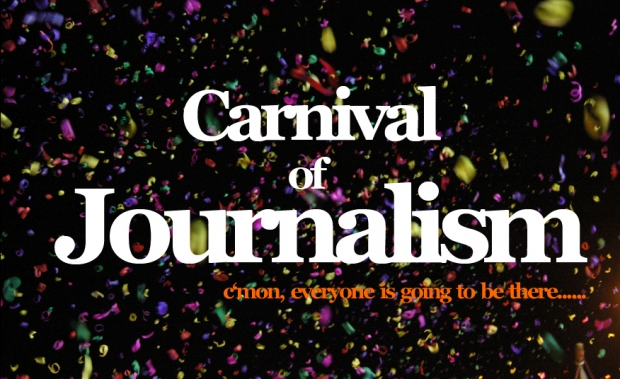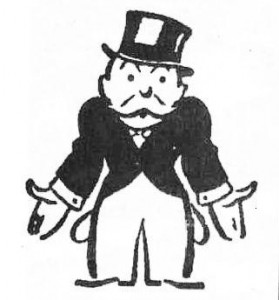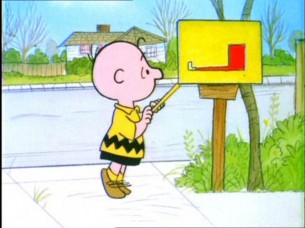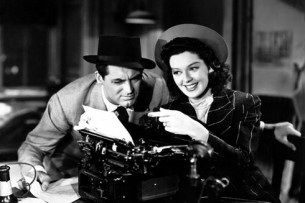Once again, welcome to my latest post for #JCarn.
The Carnival of Journalism is a loose collection of journalism thinkers (and people like me) who get together to post on their blogs with their reflections on a given prompt.
This month guest ringmaster Michael Rosenblum asks “Can a good journalist also be a good capitalist?” Journalists never like talking about money, mostly because we don’t have it, so it’s a weighty topic. I’m looking forward to seeing what my fellow carnies come up with.
If you’d like to participate next time head on over and sign up for the next prompt.
I actually find the question posed a little peculiar.
I suppose the notion here is that journalism and capitalism are mutually exclusive, at least that’s what we like to believe, but journalism has always been an enterprise designed to turn a profit. From the Hartford Courant (which proclaims itself America’s oldest continuously published newspaper) to the Huffington Post, every circulation began with a business man and an owner making an investment.
This is truth, you can argue it, but all I have to do is point to years of layoffs to prove it. The facts are that newspapers started off as a license to print money and were sold at vastly subsidized price that still allowed growth each quarter.
What we like to pretend it is– the hard living, back breaking, gritty profession we take on in service of the greater good and maintain as a responsibility to society– it was never intended to be.
As illustrated by this educational film from 1940, it was a straightforward capitalist idea:
Ignoring the sexism of the video for a moment, the ideal of journalism has only in recent decades become known as that noble truth-seeking 4th branch of government. In the wake of the Pentagon Papers, Watergate and photojournalist from the Vietnam era who demanded more than fluff, generations to come after have looked to the profession as a calling in the interest of the social good.
Anyone who has spent anytime in a newsroom knows the familiar triad, “I make no money, but I didn’t get into this for the money.” It’s so cliche in its naiveté that we began to think it was real.
What irks me is that we already know this, but refuse to admit it. As journalist, we’re an educated bunch with tried and tested abilities to research, interview, present, mine for information, simplify complex subjects and have a fairly solid understanding on what makes the world work.
When there’s a scandal or investigative story the first place we start is looking at the stakeholders and following the money, because we know it’s human nature for people to do things to your own self interest and incentives.
So then why do we pretend that journalism should be or is any different? Newspapers have become publicly traded companies with CEOs who draw large bonus and have just as much to do with spreadsheets and profit margins as any monolithic Fortune 500 company.
Going from clunkity-clunk to cha-ching
Journalism is a business, your noble intentions aside, you’re part of the great American capitalism machine.
There aren’t many journalist in the trenches today that like this reality, I myself hated it and tried to conduct myself as if it didn’t exist in the newsroom, so I have to wonder why does this attitude afflict so many of us?
Perhaps we have to ask the right question and resolve a few things, chiefly:
- Poverty isn’t something to romanticized.
- Why is it wrong to make money as a journalist?
Think of the image that you have of a journalist. Hollywood’s sold us the image of a sloppy dresser with a unkept hair, no family or social life, empty fridges in past-due draft dark apartments, sporting tussled blazers and a lose knot tie next to bottles of whiskey kept in the desk.
This person sacrifices in pursuit of the truth and only stops long enough to shave or warm up a microwave pizza, and the poverty is worn like a badge of honor. As if owning a car from the same decade, living in a place with natural light, shopping for fresh produce or asking for a raise were some how selling out on your principals.
And my friends, we’ve all drank the Kool-Aid. I’m just as guilty as you. My first job I lost money (no gas reimbursement), my second job I used my own equipment and paid for my own repairs, at another job I spent months eating $0.08 Ramen noodles on my entry level salery with unpaid overtime– and I did it all with pride.
I’m not in it for the money, I’m in it to inform and help people have a voice. And I was proud of the work I was doing, I still am, but I romanticized the ideal of the broke journalist falsely.
What’s wrong with money? The bloke above seems to be having a good time with it. I rather be that guy then the guy above him right? I’m tired of not being able to afford a new laptop or knowing if I’ll make rent next month. (anyone know a cheap place in NYC?)
Journalist have this idea that if we make any money, we’re selling out. That’s just silly and stupid on our part. There is nothing wrong with a fair wage for work done, just because you happen to be doing something you enjoy isn’t a substitute for greenbacks, it’s a perk. It means you did something right in life and ended up in a place you don’t hate going to it. Best of all, it means no “Mondays” posters of cats in the office.
Quack like a duck
Journalism is capitalism, we just don’t like the word.
And a journalist can be good capitalist, but we have to get over those deeply engrained hurdles first.
Think about it, we have a set of skills that make us perfect at running our own enterprise.
- We’re organized, smart and understand how to get to the information we need and what to do with it.
- We’re goal and deadline oriented, and used to getting $#!t done day in and day out.
- We know how to take rejection and criticism, in fact we relish it!
- We know how to interact with others and harvest relationships or get across a complex idea.
- If we don’t know something we don’t let our ego get in the way of admitting it and we aren’t afraid to ask for help in formulating or completing a game plan.
- No one knows how to follow the money, access the interests, customize the message and package and pitch an idea better than a journalist, well except a photojournalist ;).
- Who else understands media or branding or storytelling and how to connect with an audience better than us? Certainly not a “guru”.
- We embrace change and new things. SoundSlides, Video, interactive, mobile and social media? Pu-leaze, we’re already on to creating our own things like Storify and trying to incorporate uses for Pinterest. Yes, Pinterest. We invented pivot before it was a buzz word.
- When it comes to following the money and making sense of complex ideas, no one does it better, so we have all the knowledge and leads on where to look to put together a business plan of our own.
- We’re ethical. Google’s motto is “Don’t be Evil,” for a journalist to use it would be redundant. And plagiarism.
These are all skills that will help any of us become titans of industry, but first we have to get over those two giant hurdles.
- Poverty isn’t something to romanticized.
- Why is it wrong to make money as a journalist?






2 comments
Can A Good Journalist Be A Good Capitalist? | Rosenblum TV says:
Jan 30, 2012
[…] Dulai Shaminder seems read to join the revolution: And my friends, we’ve all drank the Kool-Aid. I’m just as guilty as you. My first job I lost money (no gas reimbursement), my second job I used my own equipment and paid for my own repairs, at another job I spent months eating $0.08 Ramen noodles on my entry level salery with unpaid overtime– and I did it all with pride. […]
Can a Good Journalist Be a Good Capitalist « Carnival of Journalism says:
Jan 30, 2012
[…] Dulai Shaminder seems read to join the revolution: And my friends, we’ve all drank the Kool-Aid. I’m just as guilty as you. My first job I lost money (no gas reimbursement), my second job I used my own equipment and paid for my own repairs, at another job I spent months eating $0.08 Ramen noodles on my entry level salery with unpaid overtime– and I did it all with pride. […]